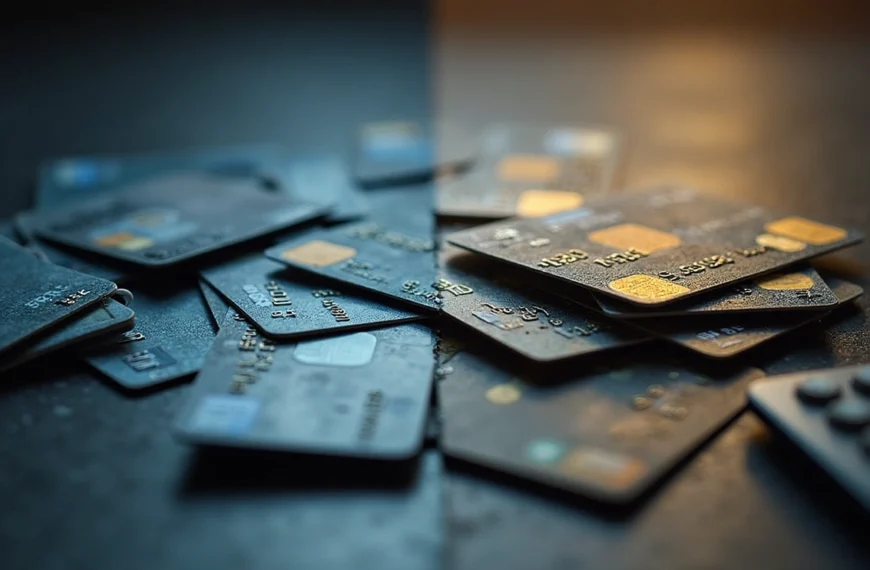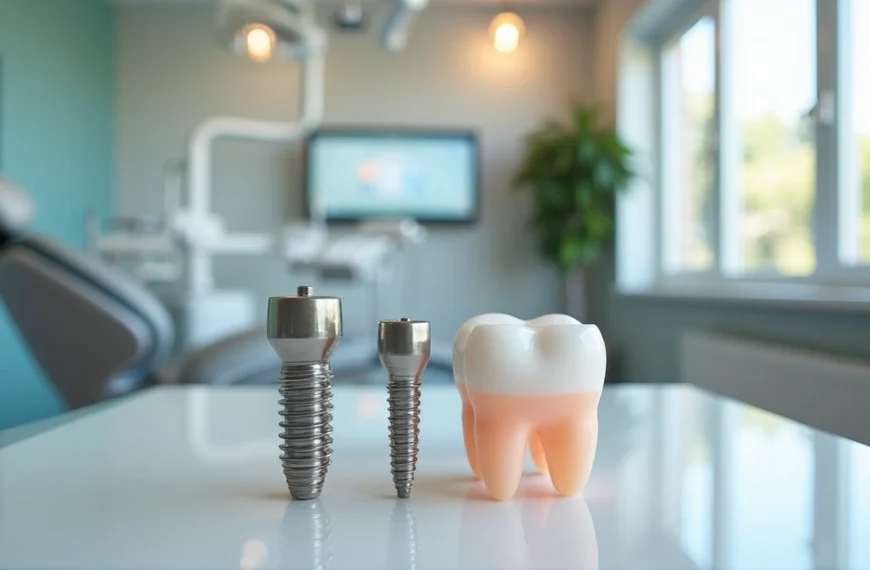Your credit score depends on several key factors. Payment history makes up 35% of your FICO score and stands as the most important element that determines creditworthiness. Lenders look at credit utilization as the second biggest factor at 30% to see how well you manage your available credit (how to start building credit).
You have several proven ways to build credit from scratch. Secured credit cards work well as a starting point. Credit builder loans can help too. Many people become authorized users on someone else’s account to begin their credit journey. On top of that, tools like Chime Credit Builder enable you to create a credit profile even without prior history.
Building credit happens faster than you might think. FICO needs just two to six months of credit activity to calculate your score. The national average sits at 714, which counts as “good” credit, but reaching this level takes steady work. Your score can improve quickly when you keep utilization below 30% and pay bills on time. Some people have boosted their scores from 540 to 660 in three months after taking care of collection accounts.
This complete guide shows you the quickest ways to build credit that work in 2025. These strategies help whether you need your first credit card or want to improve your existing credit profile.
Laying the Groundwork: What You Need to Know First
Topic: how to start building credit
Image Source: Easy Peasy Finance
You need to understand credit basics before you start building your credit. Your credit score works like a financial report card that ranges from 300 to 850. Scores above 670 are “good”. This three-digit number affects your chances to get loans, housing, and maybe even job opportunities.
How to start your credit trip
Your credit history shows how you use money. This record has details about your credit cards, loans, and whether you pay bills when they’re due. You’ll need at least one credit account that reports to a major credit bureau for six months to get your first FICO score. VantageScore might give you a score faster, possibly right after your first account shows up on credit reports.
What lenders look for in a credit profile
Lenders review several factors beyond your credit score. Here’s what matters most:
Payment history (35% of your FICO score): You pay your bills on time
Credit utilization (30%): The balance-to-limit ratio on your cards
Income and employment stability: You can afford to make loan payments
Debt-to-income ratio: Your debt payments compared to pre-tax income
Credit mix: You can handle different types of credit
Lenders want proof that you’re responsible with money and can pay back what you borrow. They look at your full credit report to see your borrowing patterns and how you handle payments.
How long it takes to build credit
Building good credit takes time and patience. New credit users need at least six months to get their first FICO score. Getting a strong credit profile needs more time than that.
Each credit profile is different, so there’s no fixed timeline. Most people take several years of smart credit use to reach “good” or “excellent” scores. Starting fresh is usually faster than fixing bad credit since negative marks stay on your reports for seven to ten years.
Good credit comes from developing smart money habits early and sticking to them over time.
Choosing the Right First Steps to Establish Credit
Topic: how to start building credit
Image Source: Discover
Building your credit takes strategic action. Several options are accessible to more people, and the best first step depends on your situation. Here are the quickest ways to start building your credit profile.
Apply for a secured credit card
Secured credit cards are a great way to get started with credit. These cards work differently from traditional ones – they need a security deposit that matches your credit limit, starting around $200. The deposit serves as collateral, which makes secured cards easier to qualify for than unsecured options.
A few things to look for in a secured card:
Reports to all three major credit bureaus
Compare annual fees (many have none)
Check if the issuer reviews your account to upgrade to unsecured cards
The Discover it® Secured Credit Card, to cite an instance, reviews accounts automatically after 7 months and might transition you to an unsecured line while returning your deposit.
Become an authorized user on a trusted account
You can take a shortcut to establishing credit by becoming an authorized user on someone else’s credit card. The card’s payment history shows up on your credit report when added to a family member’s or friend’s account. This setup doesn’t require a credit check.
Make sure the card issuer reports authorized user activity to all three credit bureaus before taking this path. Without this reporting, the strategy won’t help much. More importantly, the primary cardholder needs excellent payment habits since their mistakes will impact your credit too.
Use Chime Credit Builder or similar tools
Chime Credit Builder takes a different approach from traditional secured cards. You’ll need a Chime checking account with at least $200 in direct deposits. Money moves from checking to your Credit Builder account, which sets your spending limit. Chime then reports your monthly payments to all three bureaus.
How to establish credit with no credit history
People with no credit history should think about using multiple approaches. A secured card combined with authorized user status works well. Credit-builder loans might help too, and services that report rent and utility payments to credit bureaus can add extra boost.
Developing Habits That Build Credit Over Time
Your long-term credit health depends on consistent habits after you take those first steps to build credit. Good financial behaviors can substantially boost your credit score as time passes.
Paying bills on time: the #1 rule
Payment history makes up 35% of your FICO score, which makes it the most important factor in credit scoring. Research proves your payment track record best predicts whether you’ll pay future debts as promised. Your score can take a hit from just one or two late payments that might stay on your credit report for up to seven years. Making on-time payments for all bills should be your top priority, especially when you have credit cards, loans, and utilities. This creates the foundation for excellent credit.
Keeping balances low and utilization under 30%
Credit utilization represents about 30% of your credit score. This ratio shows how much credit you use compared to your total available credit. Here’s what you need for optimal credit health:
Your utilization should stay below 30% on each card and overall
You want to reach single-digit utilization (under 10%) for better scores
You can make multiple payments each month to keep reported balances low
Let’s look at a simple example – with a $1,000 credit limit, try to keep your balance under $300. People with the highest credit scores usually keep their utilization under 10%.
Avoiding unnecessary hard inquiries
Lenders perform hard inquiries to check your credit during application reviews, which typically causes a small, temporary drop in your scores. A single inquiry won’t hurt much, but several inquiries close together might make lenders see you as a financial risk. You should wait at least six months between credit applications.
Credit scoring models usually treat multiple inquiries for mortgages and auto loans within 14-45 days as one inquiry. This means you can shop for rates during this time without hurting your score too much.
Using credit cards responsibly
Responsible credit card use goes beyond timely payments and low balances. You should avoid applying for new cards too often, keep old accounts open to maintain your total available credit, and use cards for planned purchases instead of impulse buys. Setting up automatic payments helps ensure you never miss a due date.
Optimizing and Growing Your Credit Profile
Your credit profile gets stronger when you refine your strategy beyond core credit practices. These advanced techniques build on your foundation and propel development.
Dispute errors on your credit report
Mistakes on your credit reports can substantially hurt your score. You should get your free credit reports from each bureau at AnnualCreditReport.com and really check them for errors. The next step is to file disputes with both the credit bureau and information provider if you find any mistakes. Most disputes take 30-45 days to complete.
Here’s what you need for disputes:
Your contact details and report confirmation number
A clear explanation of incorrect items and why
Supporting documents
A request for removal or correction
Credit bureaus must look into disputes within 30 days unless they call it frivolous.
Add to your credit mix with loans or new cards
Credit mix makes up 10% of your FICO score. Your knowing how to handle different types of debt shows up when you have both revolving credit (credit cards) and installment loans (mortgages, auto loans).
A credit-builder loan might help if you only have credit cards now. On the flip side, getting a starter credit card could boost your profile if you only have loans. The best mix has both types balanced, but don’t open new accounts just to improve this factor.
Get credit for rent and utility payments
Regular credit scores don’t count rent and utility payments, but some services now help report them:
Experian Boost adds your on-time payments for utilities, phone bills, and streaming services to your Experian credit report. Users who improve their scores gain 13 points on average. Rent-reporting services can also add your rental history to credit reports, which helps people with limited credit history.
Monitor your progress with apps and alerts
Apps that monitor credit track changes to your credit file and score and let you know about potential issues. Good monitoring apps should give you:
Regular updates on your credit score
Alerts when important changes happen
Coverage from all three bureaus
These tools help you spot possible fraud quickly and see how well your credit-building strategies work.
Conclusion
Topic: how to start building credit
Building Your Credit Future: The Path Forward
Good credit needs patience, discipline, and strategic action. The trip might feel overwhelming at first. The strategies outlined in this piece give you a clear roadmap to start your credit path in 2025.
Payment history stands as the life-blood of credit building and accounts for 35% of your FICO score. Making on-time payments should be your top financial priority. Low credit utilization (preferably below 10%) substantially affects your score and shows potential lenders you can manage credit responsibly.
Secured credit cards give complete beginners an excellent starting point because they’re easy to get. You could also become an authorized user on a trusted person’s account to kickstart your credit profile without a credit check. Credit-builder loans and specialized tools like Chime Credit Builder are great options to think over.
Credit building takes time. You’ll need at least six months of credit activity before getting your first FICO score. Progress might seem slow at first, but sound financial habits consistently applied will yield big results over time.
Your growing credit opens doors to more advanced strategies. You can speed up your progress toward excellent credit by disputing errors on credit reports, broadening your credit mix with different account types, and using rent-reporting services.
Good credit’s benefits go way beyond loan approvals. Strong credit profiles help you get lower interest rates, better insurance premiums, easier apartment approvals, and maybe even better job prospects in certain industries. These advantages help you save thousands of dollars throughout your lifetime.
Your credit score shows financial responsibility—not personal worth. Everyone starts somewhere, and many people with excellent credit today once had no credit history. The strategies work when you stick to them. Good habits and regular progress monitoring will steadily move you toward your credit goals.
Building credit is more like a marathon than a sprint. In spite of that, anyone can establish and maintain excellent credit with determination and the right approach. This opens doors to financial opportunities for years to come.
FAQs
Q1. What are the fastest ways to start building credit as a beginner? One of the quickest methods is becoming an authorized user on a trusted person’s credit card. This allows you to benefit from their credit history. Additionally, applying for a secured credit card or using tools like Chime Credit Builder can help establish your credit profile.
Q2. How long does it typically take to achieve a good credit score? For those new to credit, it generally takes about six months to a year of consistent, responsible credit use to reach a good score of around 700. However, achieving an excellent score of 800 or higher often requires several years of careful credit management.
Q3. Is it true that negative information disappears from your credit report after 7 years? Most negative information, including collections and late payments, will fall off your credit report after 7 years. However, this doesn’t erase the debt itself, and some items like bankruptcies can stay on your report for up to 10 years.
Q4. What are the key factors in improving a credit score? The main factors include making on-time payments, keeping credit utilization low (preferably under 30%), maintaining a mix of credit types, limiting new credit applications, and regularly checking your credit report for errors to dispute.
Q5. How can I monitor my credit-building progress effectively? Use credit monitoring apps that provide regular score updates and alerts for significant changes. These tools can help you track improvements, identify potential issues quickly, and stay motivated on your credit-building journey.
References
Topic: how to start building credit
[1] – https://www.fidelitybankonline.com/how-to-build-credit-a-guide-for-beginners/
[2] – https://consumer.ftc.gov/articles/understanding-your-credit
[3] – https://www.americanexpress.com/en-us/credit-cards/credit-intel/how-long-does-it-take-to-establish-credit/
[4] – https://www.experian.com/blogs/ask-experian/how-long-does-it-take-to-build-credit/
[5] – https://www.experian.com/blogs/ask-experian/does-paying-utility-bills-help-your-credit-score/
[6] – https://www.nerdwallet.com/article/finance/rent-reporting-services
[7] – https://www.identityguard.com/news/credit-monitoring-app
[8] – https://www.experian.com/blogs/ask-experian/credit-education/improving-credit/building-credit/
[9] – https://www.capitalone.com/learn-grow/money-management/how-long-to-build-credit/
[10] – https://www.cnbc.com/select/how-to-build-credit-with-no-credit-history/
[11] – https://www.discover.com/credit-cards/secured-credit-card/
[12] – https://www.experian.com/blogs/ask-experian/how-to-build-credit-with-no-credit-history/
[13] – https://www.chase.com/personal/credit-cards/education/build-credit/do-authorized-users-on-credit-cards-build-credit
[14] – https://money.usnews.com/credit-cards/articles/is-the-chime-credit-builder-card-worth-it
[15] – https://www.cnbc.com/select/chime-credit-builder-secured-credit-card-review/
[16] – https://www.myfico.com/credit-education/credit-scores/payment-history
[17] – https://bettermoneyhabits.bankofamerica.com/en/credit/how-to-improve-your-credit-score
[18] – https://www.cnbc.com/select/how-to-keep-credit-utilization-low/
[19] – https://www.nerdwallet.com/article/finance/30-percent-ideal-credit-utilization-ratio-rule
[20] – https://www.nationwide.com/lc/resources/personal-finance/articles/guide-to-using-credit-card
[21] – https://www.experian.com/blogs/ask-experian/how-to-use-a-credit-card-responsibly/
[22] – https://www.creditkarma.com/credit/i/hard-credit-inquiries-and-soft-credit-inquiries
[23] – https://www.cnbc.com/select/hard-inquiries-credit-score/
[24] – https://www.experian.com/blogs/ask-experian/how-to-remove-hard-inquiries-from-credit-report/
[25] – https://www.oregonstatecu.com/habits-of-a-responsible-credit-card-user
[26] – https://www.experian.com/blogs/ask-experian/credit-education/improving-credit/improve-credit-score/
[27] – https://www.nerdwallet.com/article/finance/raise-credit-score-fast
[28] – https://www.consumerfinance.gov/ask-cfpb/how-do-i-dispute-an-error-on-my-credit-report-en-314/
[29] – https://www.experian.com/blogs/ask-experian/what-is-credit-mix-and-how-can-it-help-your-credit-score/
[30] – https://www.cnbc.com/select/how-to-get-a-good-credit-mix/
[31] – https://www.aura.com/learn/credit-monitoring-app














![No Win No Fee Lawyers: The Hidden Truth About Settlement Cuts Legal representation through no win no fee lawyers gives clients a way to fight cases without paying anything upfront. Many clients don't know that these services take a big chunk of money after winning the case. Lawyers usually take 25% to 40% of what you win as their contingency fee. The amount lawyers take from settlements can add up fast. A $100,000 settlement means your attorney gets $30,000 if they charge a 30% fee after winning your case. Your solicitor's cut might be £10,000 from a £30,000 compensation award, based on your agreement percentage. This payment model stays pretty much the same for no win no fee lawyers in different places, though percentages can change. This piece breaks down what you need to know about contingency fee deals. You'll learn about standard fee ranges, extra costs beyond the basic fee, and times when this payment setup might not work in your favor. Smart clients should think over these money matters before signing up with a lawyer to make better choices about their legal help. What No-Win No-Fee Really Means Image Source: Express Legal Funding A no-win no-fee arrangement, also called a Conditional Fee Agreement, changes the way people get legal help. This payment approach removes the need to pay legal fees upfront and creates a partnership between clients and their attorneys. How contingency fees work No-win no-fee agreements are based on contingency fees. Lawyers get paid only when they win compensation for their clients. Most lawyers take between 25% and 40% of the final amount, based on how complex the case is and where it's filed. Lawyers take their cut after winning the case. To name just one example, see a case where a lawyer wins £30,000 in compensation with a 33% fee - they would receive £10,000. On top of that, some law firms use sliding scales where they charge less for quick settlements and more if the case goes to trial. The law requires a written agreement before any work starts. This paperwork spells out the lawyer's percentage, what costs you'll need to cover, and other key details. What happens if you lose the case The meaning behind "no-win no-fee" is clear - losing your case means you won't pay your lawyer anything. All the same, you should know about a few money-related details. You won't owe your lawyer when you lose, but some deals might make you pay for court fees, expert witnesses, or other case expenses. The other side could also ask you to pay their legal costs. Many lawyers suggest getting "After Event" insurance to protect their clients. These policies cover any costs if you lose your case, which makes the no-win no-fee setup much safer. Why lawyers offer this model Lawyers want to make legal help available to more people, so they offer these payment plans. This setup helps people who don't have much money take legal action when they have valid claims. The payment structure motivates lawyers to work hard. They only get paid by winning cases, which pushes them to get the best results possible. Lawyers carefully assess each case before taking it on a no-win no-fee basis. They usually accept cases that have a good chance of winning, since they put in lots of time and resources without any guaranteed payment. The Real Cost: How Much Do Lawyers Take from a Settlement Image Source: Greiner Law Corp. The true cost of no-win no-fee legal representation becomes clear once we look at contingency fees. Many clients feel surprised to see a big chunk of their settlement checks going to their attorney's fees. Typical percentage ranges (25%–40%) No win no fee lawyers typically ask for 25% to 40% of the total settlement amount. Personal injury attorneys usually take 33.3% (one-third) of the awarded compensation[101]. Lawyers and clients agree on this percentage before any work starts on the case. Several factors shape the final percentage. Your chances of winning, case complexity, and the work to be done play key roles in determining the attorney's cut. Some areas have laws that cap the maximum contingency fees for specific types of cases. Sliding scale based on case complexity Law firms often use a tiered fee system that changes with the case stage and complexity. This scale rewards quick settlements while paying attorneys fairly if more work becomes needed. The fee might start at 30% if the case settles before lawsuit filing. This number could climb to 35% after filing or reach 40% if the case goes to trial. Law firms often group cases by complexity: 10%-20%: Simple cases with straightforward settlements 25%-35%: Typical personal injury cases 35% and above: Complex cases requiring extensive resources Examples of payout breakdowns These ground examples show how fees affect settlements: A $15,000 settlement with a 33.3% contingency fee.pdf) puts $5,000 in the attorney's pocket, leaving $10,000 for the client. Similarly, from a $100,000 settlement with a 33% fee, the attorney gets $33,000 while the client receives $67,000[102]. Complex cases tell a different story. A $100,000 settlement with a 30% fee plus $5,000 in extra costs leaves $65,000 for the client after all deductions. These fees substantially change the client's final payout. Hidden Costs You Might Not Expect Image Source: Nelson Personal Injury Lawyers Beyond percentage-based fees, clients often feel surprised by extra costs that can reduce their final compensation by a lot. These hidden costs show up in the fine print of no-win no-fee agreements. You should think over these details before signing. Court filing and expert witness fees Legal proceedings come with unavoidable court filing fees. These charges differ by jurisdiction. They usually range from $30 for small claims to several hundred dollars for complex civil lawsuits. Expert witnesses can be expensive, with hourly rates ranging from $150 to $1,000 based on their credentials and testimony complexity. Expert witnesses charge more for court appearances than consultation work because of added pressure and prep time. Clients might still need to pay experts for their prep work even if the case settles before trial. Medical report and investigation costs Medical documentation is a vital part of many legal claims. These costs include fees to release medical records, create specialized reports, and prepare documents. Investigation costs cover evidence gathering, police reports, witness interviews, and other fact-finding work needed to build a strong case. Of course, some firms say they'll cover these expenses upfront, but clients don't completely avoid these costs. When these costs are deducted from your compensation Law firms take these expenses from the settlement amount before they calculate their percentage fee, though each firm handles this differently. Some lawyers subtract these costs after figuring out their contingency fee, which changes how much money clients end up with. Most firms pay case-related costs during the process and get their money back from the settlement. The defendant usually pays most simple legal costs and disbursements in successful cases, but not always everything. Insurance protects clients from costs in unsuccessful claims at many law firms, but this protection isn't guaranteed. Clients should review their agreements carefully since they might still need to pay specific expenses even if they lose their case. When No-Win No-Fee Might Not Be the Best Option Contingency fee arrangements give many people access to justice. However, this payment model doesn't always work in a client's best interests. Knowing these limitations helps clients make better decisions about their legal representation. Cases with unclear liability Lawyer no win no fee arrangements work best in cases where fault is clear. We assessed the probability of success before taking contingency cases. Lawyers might turn down cases if there isn't enough evidence of the other party's negligence or if liability isn't certain. Cases with multiple responsible parties create more challenges. The situation gets complicated fast when several parties share liability. Lawyers are less likely to take these cases on contingency. They need to be confident they can prove the other party's negligence before accepting a case. Low-damage or low-payout claims Small claims often don't work well with the contingency model, even with real injuries. Cases that have minimal injuries or limited financial damages might not bring enough compensation to cover legal costs. The potential settlement needs to be big enough to pay for investigations, witness interviews and court fees. Personal injury lawyers often turn down cases where the "compensation potential" is too small. This doesn't mean the claim isn't valid - it just means the economics don't add up for a contingency arrangement. Situations where hourly billing may be better Hourly billing has clear advantages in certain cases. Clients see exactly what they're paying for - every hour worked and task completed. This model works well for cases that need lots of attention but don't have clear financial outcomes. Complex litigation with opposing parties works better with hourly billing and a retainer fee. Clients have more control over their case and don't feel pressured to settle quickly. Cases that need extensive preparation but have uncertain outcomes fit the hourly model better. Lawyers can spend the time needed without worrying about contingency limits. This approach often leads to better representation, especially for complex legal issues that need special expertise. Conclusion Understanding the Full Picture Before You Sign No-win no-fee arrangements offer legal representation without upfront costs. Of course, this seems attractive at first glance. In spite of that, you need to think about how these agreements can affect your final compensation. Legal fees usually range from 25% to 40% of your settlement - but that's just the start. You'll face more deductions like court filing fees, expert witness costs, and charges for medical documentation. What looks like a "free" service ends up taking a big chunk of your compensation to cover legal expenses. These arrangements work best in specific situations - cases with obvious liability, substantial damages, and solid evidence. If you have a low-value claim or complex liability issues, traditional hourly billing might serve you better. Without doubt, you should ask for clear explanations of all possible costs before signing anything. Read the fine print closely, especially when you have to deal with expenses in unsuccessful cases. Ask to see sample settlement breakdowns that show all deductions. This helps you picture what you might actually take home. Your choice to go with a no-win no-fee arrangement depends on your situation. This model helps if you don't have money to pursue valid claims. But if you have a strong case and enough funds, other fee structures might let you keep more of your compensation. Whatever payment model you choose, knowing exactly how much lawyers take from settlements helps you make better decisions. This knowledge lets you approach legal representation with real expectations and better control over your money. FAQs Q1. What percentage of a settlement do no-win no-fee lawyers typically take? No-win no-fee lawyers typically charge between 25% to 40% of the final settlement amount as their contingency fee. The exact percentage often depends on the complexity of the case and the stage at which it is resolved. Q2. Are there any hidden costs in no-win no-fee arrangements? Yes, there can be additional costs beyond the lawyer's percentage fee. These may include court filing fees, expert witness costs, medical report expenses, and investigation costs. These expenses are usually deducted from the settlement amount before or after the lawyer's fee is calculated. Q3. What happens if I lose my case in a no-win no-fee arrangement? If you lose your case, you generally won't have to pay your lawyer's fees. However, you might still be responsible for certain expenses like court costs or the opposing party's legal fees. Many lawyers offer insurance to protect clients from these potential costs in case of an unsuccessful claim. Q4. When might a no-win no-fee arrangement not be the best option? No-win no-fee arrangements may not be ideal for cases with unclear liability, low-value claims, or complex legal issues requiring extensive preparation. In these situations, traditional hourly billing might be more appropriate and potentially more cost-effective for the client. Q5. Can I negotiate the percentage a lawyer takes from my settlement? Yes, the contingency fee percentage is often negotiable. It's typically agreed upon and formalized in writing before the lawyer begins working on your case. Don't hesitate to discuss the fee structure with your lawyer and ask for a detailed breakdown of potential costs and deductions.](https://consumersweek.com/wp-content/uploads/2025/06/No-Win-No-Fee-Lawyers-The-Hidden-Truth-About-Settlement-Cuts-870x570.webp)


